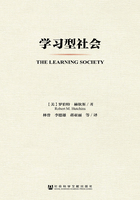
第十节 教育与家庭
前文已经提及,学前生活对一个孩子在学校中的成长具有决定性的影响。在未来,肯定会有一场运动来减少家庭对青少年成长的不利影响。实施普及的、免费义务教育就属于这种性质的一种尝试。此举意味着,社区代替家庭扮演着孩子监护人的角色。这样一来,孩子们至少在有些时间里是不受他们家庭环境的限制,并在某种程度上可以阻止他们遭受自己家庭的剥削 。人们似乎达成一种共识,即早期生活对个体的成长具有根深蒂固的影响,所以,儿童入学的年龄将变得越来越小。以前只对特权阶层开放的寄宿学校,现已在酝酿对所有的学生开放,特别是那些遭受“文化剥夺”(culturally deprived)的学生。在苏联,除设法减缓“文化剥夺”之外,他们还有意兴办寄宿制教育机构。这种寄宿制教育机构均有设立托儿所和幼儿园,并被认为是其未来教育体系中富有特色的部分。虽然官方谨慎地宣称,家长拥有掌控自家孩子教育的绝对权利,家庭是苏维埃社会的中心。但事实上,除节假日和寒暑假之外,孩子都生活在寄宿学校
。人们似乎达成一种共识,即早期生活对个体的成长具有根深蒂固的影响,所以,儿童入学的年龄将变得越来越小。以前只对特权阶层开放的寄宿学校,现已在酝酿对所有的学生开放,特别是那些遭受“文化剥夺”(culturally deprived)的学生。在苏联,除设法减缓“文化剥夺”之外,他们还有意兴办寄宿制教育机构。这种寄宿制教育机构均有设立托儿所和幼儿园,并被认为是其未来教育体系中富有特色的部分。虽然官方谨慎地宣称,家长拥有掌控自家孩子教育的绝对权利,家庭是苏维埃社会的中心。但事实上,除节假日和寒暑假之外,孩子都生活在寄宿学校 。
。
我们所具备的知识水平不允许我们说,把孩子与其家庭——哪怕是“问题”家庭——分开是对他们最为有利的。举例来说,母爱对个体发展有积极作用,不良家庭对个体发展有消极影响,如果在两者之间权衡和取舍,没有人能够说得清楚。为了让孩子免遭其家庭的不利影响而将他们从其父母身边带走,这或许也是一种不幸 。克莱尔和W. M. S.罗素(Claire and W. M. S. Russell)在他们所著的《人类行为》一书中,从西方的观点出发,并基于科学的证据得出如下结论
。克莱尔和W. M. S.罗素(Claire and W. M. S. Russell)在他们所著的《人类行为》一书中,从西方的观点出发,并基于科学的证据得出如下结论 :
:
即使存在不少缺陷,以家庭为单位的行为的代际传递是人类业已形成的最为先进的行为遗传方式。这种方式具有包容的特点,有助于维护人类行为的差异性和多样性。先进文化的特征是,父母享有把子女抚养成人的自由,社会能够提供良好的教育设施,并且能够在父母对孩子们的影响特别严重和恶劣的情况下,采取必要的干预。这或许就是大家常常挂在嘴边的“民主”一词的最优标准。
关于家庭这一角色的可能变化及其构成,有必要在别的地方予以专门讨论。在这里,我只想强调的是,把孩子从不良家庭中带离的最好替代方式是,让这些家庭变得好起来。从教育的角度看,减少长辈们的工作时间,或通过新的设备将教育传输到家中,就可以达此目的。有了自由时间,并有了把任何人想学的任何知识放到电视屏幕上的装置,家庭就能够成为一个学习型组织。甚至还有这样一种可能,尽管或许有不如人意的地方,我们可以把孩子们应该接受的全部教育,以及与父母密切相关的继续教育,均安排在家中进行。